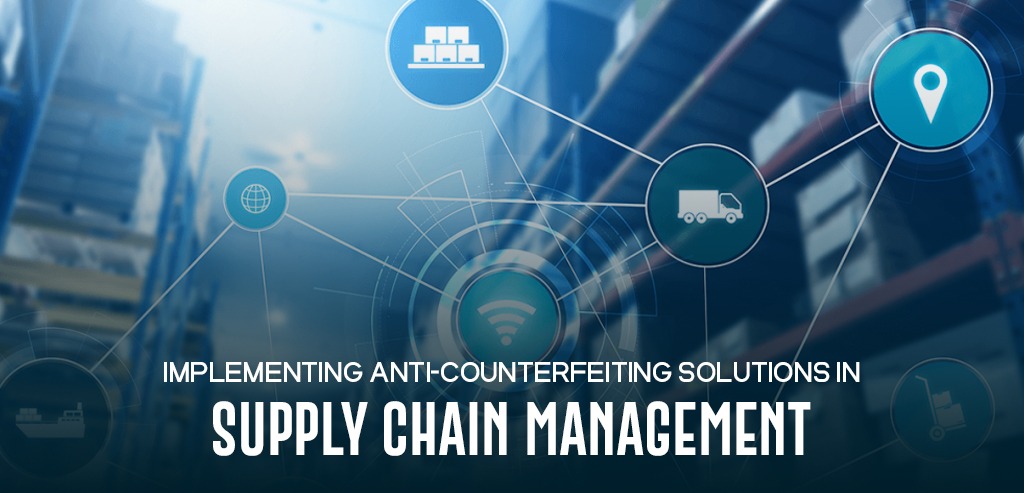Counterfeiting has become a significant challenge in today’s business world. The growth of technology has made it easier for counterfeiters to produce high-quality fake products that are difficult to differentiate from the real ones. As a result, it is essential for businesses to implement anti-counterfeiting solutions in supply chain management to protect their brand reputation, increase customer trust, and reduce losses due to counterfeiting.
This article discusses the importance of anti-counterfeiting solutions in supply chain management and current technologies used to combat counterfeiting.
What Are Anti-Counterfeiting Solutions?
Anti-counterfeiting solutions refer to measures taken to prevent the production and distribution of counterfeit products. These measures may include the use of technology, such as holograms, security labels, and tracking systems, to ensure that products are genuine and not fake.
Importance of Anti-Counterfeiting Solutions in Supply Chain Management
The use of anti-counterfeiting solutions is crucial in supply chain management for several reasons.
- First, it helps to protect the brand reputation by ensuring that customers get genuine products.
- Second, it reduces the losses incurred due to counterfeiting, which can be significant for businesses.
- Finally, it increases customer trust, which is vital for building a loyal customer base.
Overview of Counterfeiting in Supply Chain Management
Counterfeiting in supply chain management is a widespread problem that affects businesses of all sizes. Counterfeit products not only harm the brand reputation of a business but can also lead to financial losses due to lost sales and lawsuits.
Effects of Counterfeiting on the Business
Counterfeiting can have significant negative effects on a business, including a loss of revenue, harm to the brand reputation, and legal consequences. Customers who unknowingly purchase counterfeit products may also experience harm or injury, which can lead to further legal action against the business.
Causes of Counterfeiting in Supply Chain Management
Counterfeiting in supply chain management can be caused by various factors, including a lack of supply chain transparency, weak legal systems, and poor product quality control. Counterfeiters may take advantage of these factors to produce and distribute fake products in the market.
Current Anti-Counterfeiting Technologies in Supply Chain Management
Several anti-counterfeiting technologies are currently being used in supply chain management. These technologies include holograms, RFID tags, security labels, and product tracking systems.
Holograms:
Holograms are used as an anti-counterfeiting measure because they are difficult to reproduce. They are often used on high-value products such as currency, passports, and credit cards. When light is shone on a hologram, it creates a 3D image that is difficult to replicate. Holograms can also include features such as microtext, which is impossible to read without a magnifying glass, and color-shifting elements that change color depending on the angle of the light.
RFID Tags:
Radio Frequency Identification (RFID) tags are small electronic devices that are attached to products or packaging. They contain information that can be read by a scanner or reader, allowing companies to track the movement of goods throughout the supply chain. RFID tags can also be used to verify the authenticity of products, as each tag is unique and difficult to duplicate.
Security Labels:
Security labels are tamper-evident labels that are used to provide visual evidence if a product has been opened or tampered with. They are often used on pharmaceutical products, electronic equipment, and high-value consumer goods. Security labels can include features such as holograms, microtext, and color-shifting elements to make them more difficult to replicate.
Product Tracking Systems:
Product tracking systems are software programs that allow companies to track the movement of goods throughout the supply chain. These systems can include features such as GPS tracking, RFID technology, and barcoding. They allow companies to monitor the movement of products in real-time and ensure that they are not being diverted or stolen.
Advantages of Implementing Anti-Counterfeiting Solutions in Supply Chain Management
Implementing anti-counterfeiting solutions in supply chain management offers several advantages for businesses.
Improved Brand Reputation
Anti-counterfeiting solutions help to protect a business’s brand reputation by ensuring that customers receive genuine products. This helps to build customer trust and loyalty, which can lead to increased sales and revenue.
Increased Customer Trust
The use of anti-counterfeiting solutions in supply chain management helps to increase customer trust by ensuring that products are genuine and of high quality. This, in turn, leads to increased customer loyalty and repeat business.
Reduced Losses Due to Counterfeiting
Implementing anti-counterfeiting solutions in supply chain management helps to reduce losses due to counterfeiting. By ensuring that only genuine products are sold, businesses can avoid lost sales, lawsuits, and other financial losses.
Conclusion
There are several anti-counterfeiting technologies currently being used in supply chain management, each with their own unique features and benefits. These technologies help companies to protect their products from counterfeiting and ensure that consumers receive genuine, high-quality goods.

